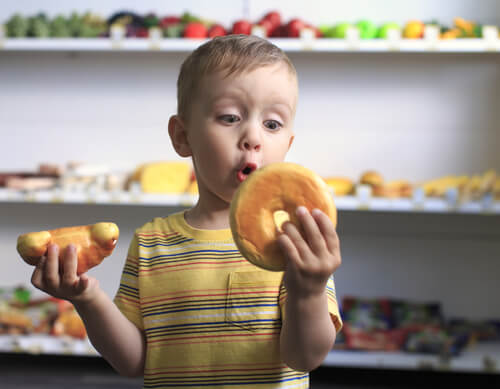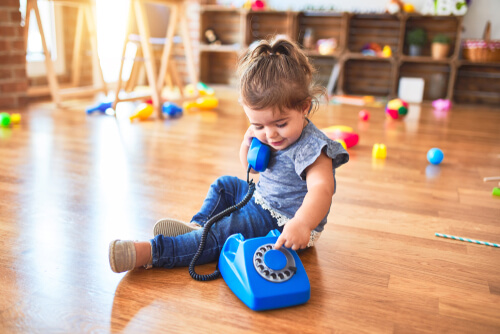Language Development Games Your Toddler Will Love
Feb 8, 2022 Infants and toddlers have their own unique ways to communicate even before they learn to speak. The smiles and gurgles that brighten up your day, different facial expressions and actions like pointing at something, are their way of sharing what is going on in their little minds.
In This Article
Encouraging forms of non-verbal communication that begin way before first words lays a strong foundation for speech and language development.
Communication milestones are an important part of developmental milestones in babies, and mark non-verbal and verbal skills that a child has mastered at a certain age. An infant may begin babbling and cooing in the first few months and gradually make vowel sounds, vary tones, and try to mimic the parent’s voice at around six months. Around the first birthday, you may even be treated to the first word, so keep your toddler talking and listening!
Language Development with Speech Blubs
Speech Blubs is a great way for your child to learn from early sounds to building sentences. Start your free trial today and explore engaging activities that will benefit your child and that they will love.
Boost Your Child’s Speech Development!
Improve language & communication skills with fun learning!

If your toddler has already made friends with words before entering preschool, it will make learning much easier going forward. Children learn best while playing, so devising activities for infants and toddlers that help to develop language skills while having fun work very well. Here are a few fun ways that you can help your toddler reach relevant speech milestones and boost language and vocabulary.
1. I Spy
Play this game as you walk in the park, go for a drive, or even at home. Pick an item that you see and let your child guess it. Use descriptive words like ‘I spy something round to play with’ for a ball, or ‘I spy something tall and green’ for a tree. Children learn many new words and expand their vocabulary while learning to observe things around them.

2. This or That
Offer them simple choices in daily life. When offering a snack, ask whether your toddler would like an apple or a banana. Doing so prompts them to speak out a complete word or even a short sentence, rather than simply pointing at it or nodding yes or no. Asking, ‘Shall we go for a walk or on the swing?’ gives your child more chances to speak and learn new words. At the same time, your child will feel very important and grown-up for being allowed to decide.
3. Telephone Time
You must have seen your little one hold a toy to their ear and imitate you talking on the phone. Turn this into a game and have a pretend phone call. Ask questions that will prompt a discussion, like what your child did during the day, or what they want to eat for the next meal. This is a great way for your toddler to learn to structure thoughts and have a conversation.

4. Mystery Box
Play this game to introduce descriptive words to your toddler. Fill a box with an assortment of objects like toys, a spoon, blocks, or a scarf. While you look the other way, let your child pick up an item for you to guess. Ask questions to get hints about the color and shape, whether the object is hard, soft, or shiny. For better understanding, you could begin by picking each item and saying a few words about it that your baby can use while playing. Take turns at guessing and giving hints.
5. Supermarket Day
Take your child along the next time you go grocery shopping or to the supermarket. As you pick up an item, talk about how you will use it. For instance, talk about how they clean their teeth as you browse through the dental care section, or about their favorite way to eat a banana or an apple as you pick fruits. Such discussions help them develop context and connect objects to their function in daily life.

6. Songs and Rhymes
Word repetition in songs and rhymes helps to reinforce new words and commit them to memory. Apart from nursery rhymes, get creative and make up a song on body parts during bath time or diaper changes. Sing ‘Old McDonald had a farm’ using your child’s name to list out animal sounds, or have interesting actions to go with the words of your own special rhyme!
There is no ‘right’ age to begin teaching your child language. Small children develop their linguistic skills best by interacting with others. Spending time talking to them about everything that’s happening around you helps them learn new words, structure their thoughts, and become aware of their surroundings. Games and activities for babies that help to hone these skills are the perfect way to blend play with learning.
